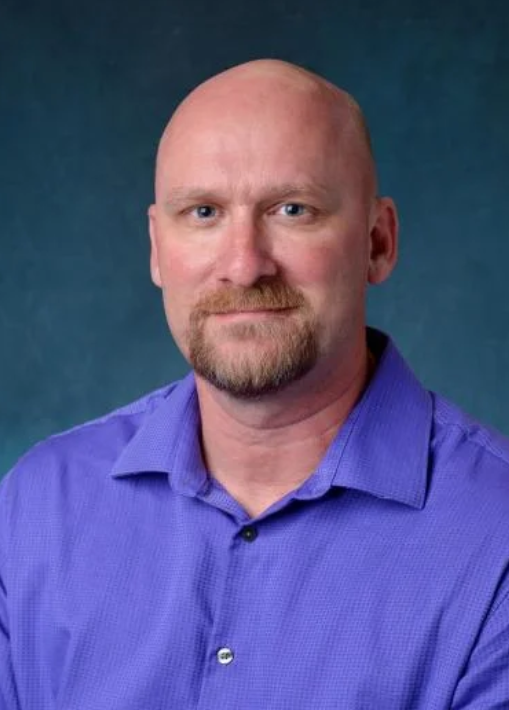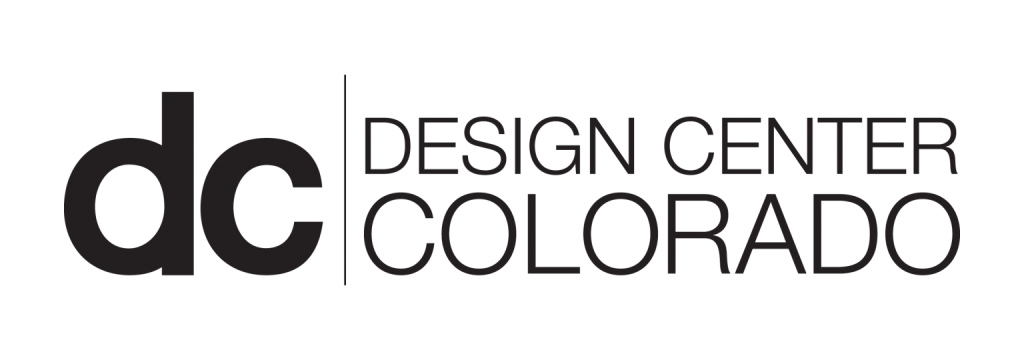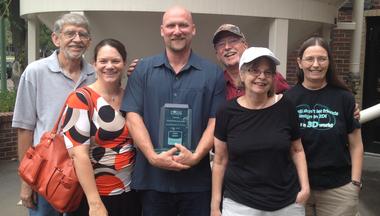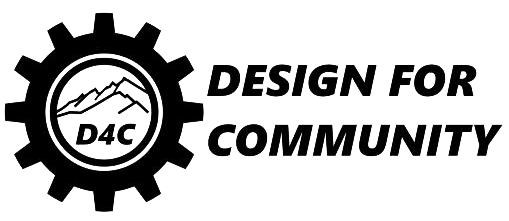“I’ve been a member of this group since it started; and even with all my experience it remains a resource for networking and it’s a great resource for learning advanced CAD topics from people using the tools.”
Heather Hasz recently had a coffee and a catch-up with Colorado SOLIDWORKS User Group Leader, Dan Riffell. Dan shared his previous work in mechanical engineering and how it played a role in leading him to become the Associate Professor of Practice at University of Colorado in Boulder.
Dan, let’s start with a little introduction to who you are and your background.
Sure, I’ve been in the engineering field for about 26 years now, maybe longer. I’ve been messing around with CAD since the late 90s and have been using the SOLIDWORKS platform since around 2000.
Initially, I started out in a research and development company called Eltron Research. In that role, my job was to design and build experimental apparatus. At any one time, we would have 30 projects going on (we had funding from DoD, DOE, NASA, as well as the big hitters in private industry). After a while, we started getting big and we spun off three other companies based on the types of projects that we were working on.
What kind of other projects were we working on?
We didn’t do too much in biology – I didn’t create any new strains of mice, a virus, drugs or anything like that. We worked mostly in the energy field, catalysis sensors, materials, that kind of thing. One day I could be asked to design a rocket motor test stand and the next day I would be designing a way to test new catalysts for catalytic converters.
Now, with the 3 start up companies that launched, one was in Oklahoma and that company was Continental Technologies. We designed, built and operated pilot scale operations (taking milliliters per minute kind of bench scale stuff and turning that into barrels per day). The last project I worked on with Continental was making a bio asphalt production facility. We would take corn stover and put it in the front end and asphalt would come out the other end. Yeah – that was fun.
Another company was Eltron Water Systems, which developed water-based technologies. We developed new ways to produce hydrogen peroxide and peracetic acid and how to steal the UM, the heavy metals out of mine wastewater and that sort of thing.


Because we are in Boulder and with my experience in CAD, the folks at the University of Colorado, asked me to teach and redevelop their CAD class. They were only 5 miles away from my office, so I popped over there and taught a class. I had never taught a college level class before, however, because of my SOLIDWORKS user group experience I’ve been unofficially training people for many years.
The students seemed to like the CAD class and it was a natural fit for me. They asked me to create a ‘Design for Manufacturing’ class for Graduate students. Over time, they came to me and said, “we’re going to have to have you work full time”, which they did and I haven’t looked back. In my role, I am what’s called a “Professor of Practice”. My role with the school is to prepare students for the practice of engineering. We are very good at teaching students’ science and math – but not always good at producing actual engineers. That’s the difference between a national accredited University and a Trade school, and I’m trying to marry those two things the best I can.
How long have you been with the University of Colorado now?
Great question – since 2015, so almost 8 years now.
Dan, let’s chat about your work as a SOLIDWORKS user group leader. You started as a member of the Colorado SOLIDWORKS User Group, when did you assume the leadership role?
The Colorado SOLIDWORKS User Group was founded in 2005 by Gerald Davis and Steve Ellenberg and two other members who are still involved, Paul and Kathy. The amount of experience bound up in those four individuals is amazing. I’ve been a member of this group since it started; and even with all my experience it remains a resource for networking and it’s a great resource for learning advanced CAD topics from people using the tools.
Over time, it changes from me attending the meetings to becoming more active and presenting at the meetings. A position on the leadership committee for the SWUG came open and I was asked to serve as Secretary, which I accepted and helped organize presenters at the meetings. When Gerald (Davis) retired, I just sort of fell into the role and I think I have been President for about 10 years now.
As a User Group Leader, if you were to talk to someone considering being a group leader, what advice would you give them?
The advice that I give people who want to start user groups is to make sure they’re in contact with their SWUGN Committee members. We have Committee Members that represent different areas of the United States (Dan is a SWUGN Committee Member that represents the Southern Region of the United States). These committee members are not just in the United States, they are all over the world.
As a committee member, we can provide information that they need about tools that are available to them. We can give them guidance on requesting sponsorships, giveaway items and how to create accounts and all that other stuff; the sort of background management that people need to know. Besides the background stuff, I would say if somebody wanted to create a user group, just go for it, I don’t think there’s any downside.
At the very least, you as the leader are going to create a network for yourself as well as learning about your industry. In addition, you’re going to learn how to present to a varied audience. Even though I’ve been around for a while, every time I go to a user group meeting, I learn something.
What’s the best piece of advice that you’ve ever been given?
As an undergraduate I was taking an honors Sociology class and we had a Buddhist Monk come in to talk with us. The advice that has stuck in my stubborn brain is what he said, and it was “just be present”. Somehow that has made a lot of sense to me. How do I interpret that? If I’m taking out the trash, I’m focused on taking out the trash and I’m not like thinking about the other things that I could be doing. If I’m washing the dishes, or if I’m walking in between courses, or if I’m doing whatever. I try to be where I am as much as I can.
I don’t know why that piece of advice stuck, but it seems to have.

Dan, you are doing so much more than just teaching future engineers on materials and design skills – you are also giving them the opportunity and knowledge of how to apply that in a practical world setting.
Please share with us your work with the organization you created – Design for Community
Sure, Design for Community is an organization that takes the students and faculty from CU and puts them into a real-life design consulting firm.
As I have been in the industry for so long, people come to me and ask me if I can work on things and those that know me from the University will contact me and ask if I have students that can work on a project for a short- or long-term period of time. There has been no mechanism for providing this with the university structure so I’ve created Design for Community. This is a pro bono resource for engineering, design, and product development services for people in industry or on campus.
This program allows me to teach professional consulting topics and the way that they pay that back is by working on these kinds of projects that drop on us pretty much at any time. Based on the resources and the students that I have at any one time, they move around. Sometimes, I can have four people working on an electric vehicle project for Children’s Hospital, I could have one person working on a proprietary tool for a local individual and currently, we are designing something as simple as a book drop for a local library.
As the Executive Director of our Senior Design Program, I can say that our program is world-class. Other universities contact us to figure out how to run their programs in this manner.
We have companies such as Ball Aerospace and Medtronic who come to us and we provide them with a team of seven students for a year and that acts as their Capstone. Those companies and large projects are not all that I am hoping to capture with Design for Community. It’s the small projects that fall through the cracks and if you have ever worked in consulting, you know that it can’t always be the big ones that you work on. The small companies need help because it might be a resource issue at the small company where they don’t have the budget and the manpower to get some of the work done. It’s all the little businesses that can benefit from this program.
Businesses come to us when they may be stuck. They may not have the experience, knowledge, or financial resources and our job is to get people unstuck – that’s what we do well as engineers.
We are giving students those other secondary skills of what it means to be employed in a real-life environment. One of the big takeaways of this, which is somewhat unexpected for me is that whole “client relations” aspect. Young engineers and students often don’t realize that that’s a large part of what your job will be, so they’d love to maybe just do the design part. As they learn, there is the entire other end of the equation of the relationship and the importance of communicating and listening to what the client needs from you and understanding that.

Are there any other programs like this in the US?
I do not believe that this was happening anywhere else. We sort of ‘stole’ the idea from another program we have on campus that was started by Brad Bernthal in the Law School. What Brad did was create a law clinic where students offer free legal services under the guidance of professional lawyers to anyone affiliated with the campus.
For example, if any of my design teams need to write a patent – they don’t know how to do that. They can go to the entrepreneurial law clinic, and it’s done pro bono.
As I have always been a fan of repurposing a good program, we modeled our program after this.
Dan, you achieved the Certified SOLIDWORKS Expert as well as many other certifications in the engineering industry. As both an educator and industry professional, how important do you feel certifications are with respect to employability?
Certifications are hugely important. Anything that you can put on your resume that differentiates you from anybody else, especially in a job market that’s as competitive as ours.
Now, do I think that having a certification makes me a better engineer? No – I didn’t magically become better with a certification. It’s a way to communicate your skill set in a uniform way to people who are looking for that kind of skill set. It’s a small effort for large gains.
It was a pleasure speaking with Dan to learn about how he became a SWUG Leader and how his previous work in mechanical engineering played a role in leading him to become the Associate Professor of Practice at University of Colorado in Boulder.
Add to Your Knowledge and Get DriveWorks Certified
We offer free DriveWorks certifications to give students and professionals the opportunity to gain additional skills and certifications.
Improve your SOLIDWORKS skills and design automation knowledge.